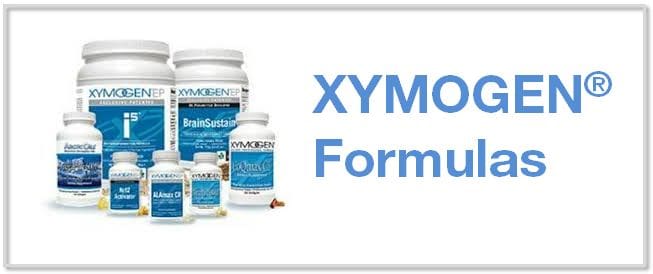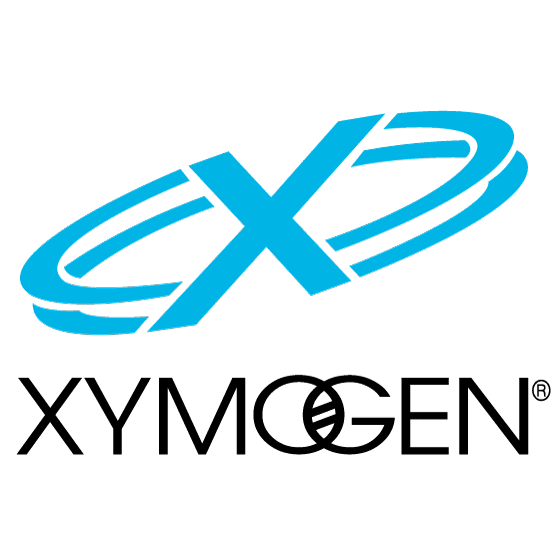Folate deficiency and poor folate metabolism are associated with a variety of health issues, such as neural tube defects. Fortunately, the mandatory folic acid programs started by many developed countries over the last two decades have tremendously affected the prevalence of these health issues. The health benefits of utilizing folic acid supplements simply cannot be ignored.
Methylation deficits have also been associated with health issues like ADD/ADHD, allergies, addiction, anxiety, Alzheimer’s Disease, asthma, atherosclerosis, autism spectrum disorder, behavioral changes, bipolar disorder, chronic fatigue, chemical sensitivity, cleft palate, cancers, depression, diabetes, Downs syndrome, dementia, essential hypertension, fertility issues, fibromyalgia, insomnia, multiple sclerosis, neuropathy, Parkinson’s Disease, schizophrenia, and thyroid disease.
Methylation is an essential aspect of physiology. Healthcare professionals recognize that a person may develop methylation deficits in a variety of ways, including through nutrient deficiency, competition for methyl donor utilization, methylation inhibitors, genotype, and aging. Dr. Alex Jimenez, doctor of chiropractic, discusses how specific factors can eventually cause methylation deficits.
Table of Contents
Nutrient Deficiency
Reduced levels of methyl donors caused by nutrient deficiency can ultimately affect both metabolic and DNA methylation activity in the human body. Many vital nutrients are involved in the process of methylation, which we will discuss in further detail below. However, the most frequently recognized nutrients which we can commonly be deficient in are folate and vitamin B12.
According to information from the National Health and Nutritional Examination Survey, or NHANES, the average dietary intake of food-fortified folic acid and natural food folates in adults range from 454 to 652 mcg DFE per day, of which 190 mcg/d is estimated to develop from folic acid fortification, compared with a target RDA of 400 mcg/d DFE. These average folate levels may increase the risk of developing nutrient deficiency in several people. These include women of childbearing age and non-Hispanic black women.
People have started to demonstrate low levels of dietary folate intake, ranging from 200-350 mcg/d DFE, when removing sources of fortified foods from their diet, such as gluten-containing grains and processed breakfast cereals. Although healthcare professionals recommend people avoid processed and refined foods, especially to prevent triggering food sensitivities, it’s fundamental to increase natural sources of folate to achieve optimal intake levels and promote overall health and wellness in the population.
The average intake for vitamin B12 is estimated to be at 3.4 mcg/d, higher than the recommended 2.4 mcg/d RDA for a majority of adults. However, healthcare professionals understand that specific population groups are at higher risk of developing methylation deficits associated with nutrient deficiency. As we age, people’s ability to produce the gastric hydrochloric acid and intrinsic factor necessary for vitamin B12 production can decrease. This can then lead to health issues which further limit gastric function.
Many patients that visit a doctor or functional medicine practitioner may also have conditions which can affect nutrient absorption and their functional status, including dysbiosis, small intestine bacterial overgrowth, altered transit time, Crohn’s disease, food allergies or sensitivities, and impaired thyroid function, among other health issues. These should be evaluated by the patient’s nutrient need.
While avoiding processed food-based diets is essential for optimal health and wellness, improperly-implemented whole-food diets can still have the potential to be imbalanced. Therefore, people should include foods that provide all of the necessary nutrients the human body required, including methylation nutrients. People should also check functional nutrient status through laboratory tests.
Competition for Methyl Donors
Methylation activity, such as high catecholamine turnover, histamine clearance, circulating estrogens, or detoxification, can decrease methyl donors. By way of instance, SAMe use for catecholamine biosynthesis and degradation increases during physiological and psychological stress, which can ultimately affect the availability of SAMe. In people who react to antigens, increased histamine activity can affect methyl donor levels.
L-Dopa drugs and/or medications are a common treatment in patients with Parkinson’s disease. L-Dopa metabolism occurs through COMT with SAMe as a cofactor to utilize its methyl group. Its use is associated with reduced plasma folate and elevated homocysteine. L-Dopa may affect the process of methylation which can remove heavy metals and other toxins that can be considered contributors to Parkinson’s disease, among other health issues.
Methylation Inhibitors
S-adenosyl homocysteine, or SAH, is a powerful competitive inhibitor of SAMe-dependent methyltransferases, including DNMT, which generally increases with hyperhomocysteinemia. The conversion of SAH to homocysteine is triggered by S-adenosyl homocysteine hydrolase, which is fully reversible and supports biosynthesis over hydrolysis. Therefore, an increased quantity of homocysteine can restrict the production of hydrolysis and promote the development of SAH, preventing SAMe-dependent methylation activity.
Genotype
Many enzymes and their corresponding genes play a role in methylation. However, many healthcare practitioners also include genotyping when evaluating their patients. Patients can order genetic profiling on their own and they are starting to bring that information to their doctors for evaluation. According to research studies, genotype can affect methylation status.
Frequency and Effects of MTHFR Polymorphisms
The most common MTHFR polymorphisms are C677T and A1298C. Some variations, such as the homozygote 677TT variants, can vary according to ethnicity and geography. Approximately 20 percent of these variations are reported in US Hispanics, Colombians and Amerindians in Brazil. While approximately 8 to 20 percent of these variations are reported in White populations in Europe, North America, and Australia. Approximately less than 2 percent of these variations are found in Black populations.
Meanwhile, the homozygote 1298CC variants can also vary according to ethnicity and geography. Approximately 7 to 12 percent of these variations are reported in White populations in North America and Europe. Approximately 4 to 5 percent of these variations are reported in Hispanics and approximately 1 to 4 percent of these variations are reported in Asians. Additional information is still required as to the dispersion of heterozygote genotypes, as well as that of compound genotypes, among population groups.
Moreover, variations in C667T polymorphisms may also be increasing. Research studies from Spain, by way of instance, demonstrated an increase of the C677T genotype in the post-folic acid-fortification era. Homozygous 667TT variants can have a 70 to 75 percent decrease in enzyme activity. Heterozygotes decrease 33 to 35 percent of enzyme activity. Homozygous 1298CC genotypes have a 39 percent decrease in enzyme activity, and heterozygotes have a 17 percent decrease in enzyme activity. Heterozygotes for both 667CT and 1298AC may also experience as much as a 52 percent decrease in enzyme activity, according to research studies.
Research studies have ultimately demonstrated that this change in enzyme activity can affect folate and homocysteine levels. A recent systematic review and meta-analysis reported a 16 percent decrease in erythrocyte folate levels for homozygous 677TT genotypes when compared with their wildtype 677CC counterparts and an 8 percent decrease for heterozygous 677CT genotypes. Red blood cell folate measurements include all the different folate vitamers, so we cannot exclude 5-mTHF, needed for homocysteine metabolism.
Aging
Aging can also affect DNA methylation, including global hypomethylation, with hypermethylation in normally unmethylated CpG areas, which may cause genomic instability. Maintaining proper methylation status through nutritional and lifestyle modifications are considered to be safe and effective, alternative treatment options that can help slow down the age-related decline in methylation.

DNA methylation is an epigenetic process which occurs when a methyl group triggers the function of genes and enzymes in DNA, ultimately impacting gene expression. Methyl groups can be directly delivered through dietary methyl donors, such as methionine, folate, betaine, and choline. However, low levels of methyl groups as well as methyl donors due to a variety of factors can cause methylation deficits. In this article, we discuss the causes for methylation deficits where we also provide smoothies and juices which can help promote methylation support.
Dr. Alex Jimenez D.C., C.C.S.T. Insight
Smoothies and Juices for Methylation Support

While many healthcare professionals can recommend nutritional guidelines and lifestyle modifications, there are several alternative treatment options you can try for yourself at home. As described above, however, supplementation for methylation support should be correctly determined by a healthcare professional. Smoothies and juices are a fast and easy way to include all the necessary nutrients you need for methylation support in a single serving. The smoothies and juices below are part of the Methylation Diet Food Plan.
Sea Green Smoothie
Servings: 1
Cook time: 5-10 minutes
• 1/2 cup cantaloupe, cubed
• 1/2 banana
• 1 handful of kale or spinach
• 1 handful of Swiss chard
• 1/4 avocado
• 2 teaspoons spirulina powder
• 1
• 3 or more ice cubes
Blend all ingredients in a high-speed blender until completely smooth and enjoy!
Berry Bliss Smoothie
Servings: 1
Cook time: 5-10 minutes
• 1/2 cup blueberries (fresh or frozen, preferably wild)
• 1 medium carrot, roughly chopped
• 1 tablespoon ground flaxseed or chia seed
• 1 tablespoons almonds
• Water (to desired consistency)
• Ice cubes (optional, may omit if using frozen blueberries)
Blend all ingredients in a high-speed blender until smooth and creamy. Best served immediately!
Sweet and Spicy Juice
Servings: 1
Cook time: 5-10 minutes
• 1 cup honeydew melons
• 3 cups spinach, rinsed
• 3 cups Swiss chard, rinsed
• 1 bunch cilantro (leaves and stems), rinsed
• 1-inch knob of ginger, rinsed, peeled and chopped
• 2-3 knobs whole turmeric root (optional), rinsed, peeled and chopped
Juice all ingredients in a high-quality juicer. Best served immediately!
Ginger Greens Juice
Servings: 1
Cook time: 5-10 minutes
• 1 cup pineapple cubes
• 1 apple, sliced
• 1-inch knob of ginger, rinsed, peeled and chopped
• 3 cups kale, rinsed and roughly chopped or ripped
• 5 cups Swiss chard, rinsed and roughly chopped or ripped
Juice all ingredients in a high-quality juicer. Best served immediately!
Zesty Beet Juice
Servings: 1
Cook time: 5-10 minutes
• 1 grapefruit, peeled and sliced
• 1 apple, washed and sliced
• 1 whole beet, and leaves if you have them, washed and sliced
• 1-inch knob of ginger, rinsed, peeled and chopped
Juice all ingredients in a high-quality juicer. Best served immediately!
Protein Power Smoothie
Serving: 1
Cook time: 5 minutes
• 1 scoop protein powder
• 1 tablespoon ground flaxseed
• 1/2 banana
• 1 kiwi, peeled
• 1/2 teaspoon cinnamon
• Pinch of cardamom
• Non-dairy milk or water, enough to achieve desired consistency
Blend all ingredients in a high-powered blender until completely smooth. Best served immediately!
ProLon® Fasting Mimicking Diet
Balanced methylation support can be achieved through proper nutrition. The ProLon® fasting mimicking diet offers a 5-day meal program which has been individually packed and labeled to serve the foods you need for the FMD in precise quantities and combinations. The meal program is made up of ready-to-eat or easy-to-prepare, plant-based foods, including bars, soups, snacks, supplements, a drink concentrate, and teas. The products are scientifically formulated and great tasting. Before starting the ProLon® fasting mimicking diet, 5-day meal program, please make sure to talk to a healthcare professional to find out if the FMD is right for you. The ProLon® fasting mimicking diet can help promote methylation support, among a variety of other
Many doctors and functional medicine practitioners may recommend higher doses of methyl donors in several patients, however, further research studies are needed to determine the proper amount of methylation supplementation. The scope of our information is limited to chiropractic, musculoskeletal and nervous health issues as well as functional medicine articles, topics, and discussions. To further discuss the subject matter above, please feel free to ask Dr. Alex Jimenez or contact us at 915-850-0900 .
Curated by Dr. Alex Jimenez
Additional Topic Discussion: Acute Back Pain
Back pain is one of the most prevalent causes of disability and missed days at work worldwide. Back pain attributes to the second most common reason for doctor office visits, outnumbered only by upper-respiratory infections. Approximately 80 percent of the population will experience back pain at least once throughout their life. Your spine is a complex structure made up of bones, joints, ligaments, and muscles, among other soft tissues. Injuries and/or aggravated conditions, such as herniated discs, can eventually lead to symptoms of back pain. Sports injuries or automobile accident injuries are often the most frequent cause of back pain, however, sometimes the simplest of movements can have painful results. Fortunately, alternative treatment options, such as chiropractic care, can help ease back pain through the use of spinal adjustments and manual manipulations, ultimately improving pain relief.
Formulas for Methylation Support
XYMOGEN’s Exclusive Professional Formulas are available through select licensed health care professionals. The internet sale and discounting of XYMOGEN formulas are strictly prohibited.
Proudly, Dr. Alexander Jimenez makes XYMOGEN formulas available only to patients under our care.
Please call our office in order for us to assign a doctor consultation for immediate access.
If you are a patient of Injury Medical & Chiropractic Clinic, you may inquire about XYMOGEN by calling 915-850-0900.
For your convenience and review of the XYMOGEN products please review the following link.*XYMOGEN-Catalog-Download
* All the above XYMOGEN policies remain strictly in force.
***
Post Disclaimer
Professional Scope of Practice *
The information herein on "Methylation Deficits" is not intended to replace a one-on-one relationship with a qualified health care professional or licensed physician and is not medical advice. We encourage you to make healthcare decisions based on your research and partnership with a qualified healthcare professional.
Blog Information & Scope Discussions
Welcome to El Paso's Wellness blog, where Dr. Alex Jimenez, DC, FNP-C, a board-certified Family Practice Nurse Practitioner (FNP-C) and Chiropractor (DC), presents insights on how our team is dedicated to holistic healing and personalized care. Our practice aligns with evidence-based treatment protocols inspired by integrative medicine principles, similar to those found on dralexjimenez.com, focusing on restoring health naturally for patients of all ages.
Our areas of chiropractic practice include Wellness & Nutrition, Chronic Pain, Personal Injury, Auto Accident Care, Work Injuries, Back Injury, Low Back Pain, Neck Pain, Migraine Headaches, Sports Injuries, Severe Sciatica, Scoliosis, Complex Herniated Discs, Fibromyalgia, Chronic Pain, Complex Injuries, Stress Management, Functional Medicine Treatments, and in-scope care protocols.
Our information scope is limited to chiropractic, musculoskeletal, physical medicine, wellness, contributing etiological viscerosomatic disturbances within clinical presentations, associated somato-visceral reflex clinical dynamics, subluxation complexes, sensitive health issues, and functional medicine articles, topics, and discussions.
We provide and present clinical collaboration with specialists from various disciplines. Each specialist is governed by their professional scope of practice and their jurisdiction of licensure. We use functional health & wellness protocols to treat and support care for the injuries or disorders of the musculoskeletal system.
Our videos, posts, topics, subjects, and insights cover clinical matters, issues, and topics that relate to and directly or indirectly support our clinical scope of practice.*
Our office has reasonably attempted to provide supportive citations and has identified the relevant research studies or studies supporting our posts. We provide copies of supporting research studies available to regulatory boards and the public upon request.
We understand that we cover matters that require an additional explanation of how they may assist in a particular care plan or treatment protocol; therefore, to discuss the subject matter above further, please feel free to ask Dr. Alex Jimenez, DC, APRN, FNP-BC, or contact us at 915-850-0900.
We are here to help you and your family.
Blessings
Dr. Alex Jimenez DC, MSACP, APRN, FNP-BC*, CCST, IFMCP, CFMP, ATN
email: coach@elpasofunctionalmedicine.com
Licensed as a Doctor of Chiropractic (DC) in Texas & New Mexico*
Texas DC License # TX5807
New Mexico DC License # NM-DC2182
Licensed as a Registered Nurse (RN*) in Texas & Multistate
Texas RN License # 1191402
ANCC FNP-BC: Board Certified Nurse Practitioner*
Compact Status: Multi-State License: Authorized to Practice in 40 States*
Graduate with Honors: ICHS: MSN-FNP (Family Nurse Practitioner Program)
Degree Granted. Master's in Family Practice MSN Diploma (Cum Laude)
Dr. Alex Jimenez, DC, APRN, FNP-BC*, CFMP, IFMCP, ATN, CCST
My Digital Business Card







